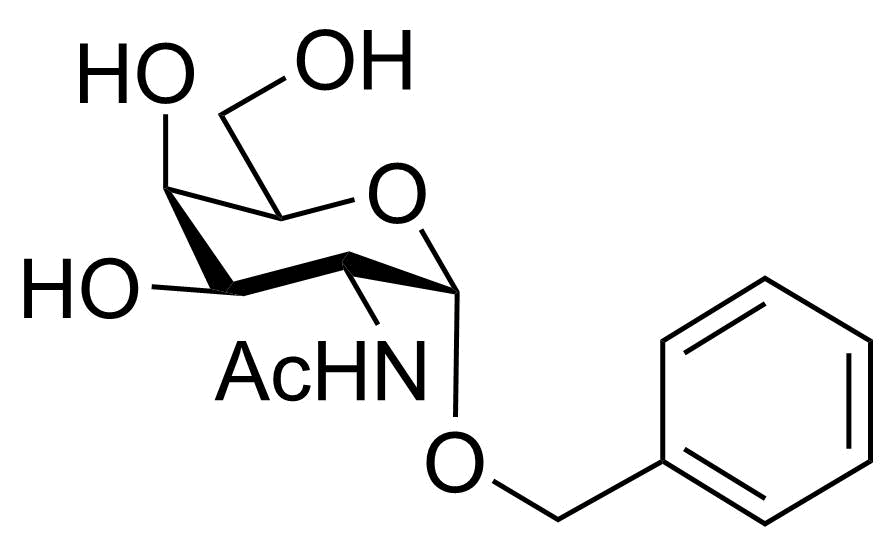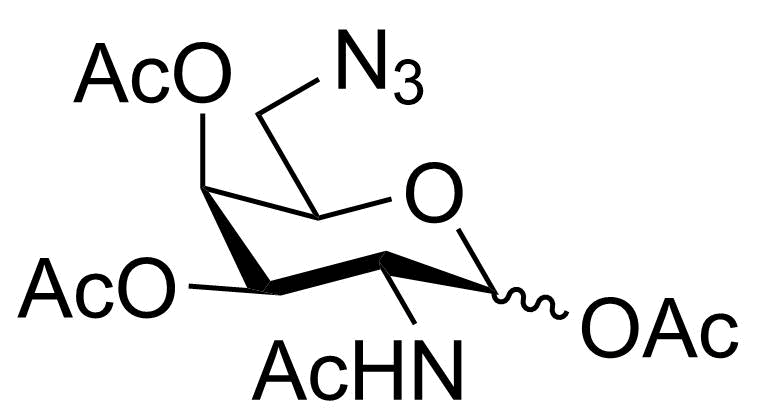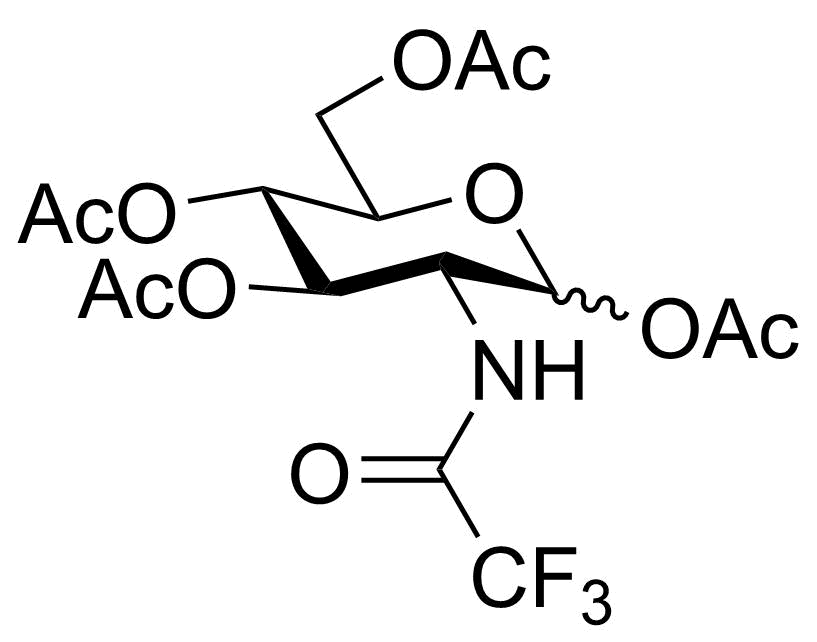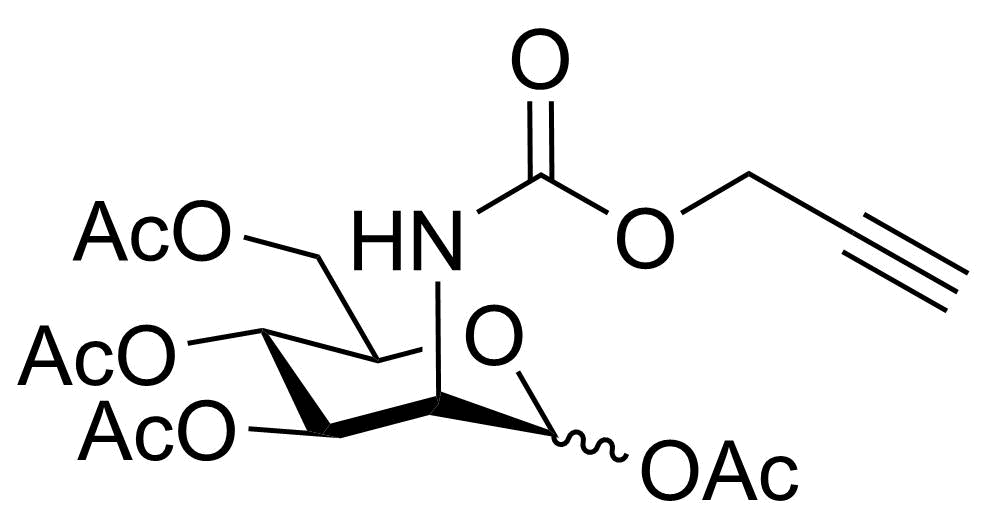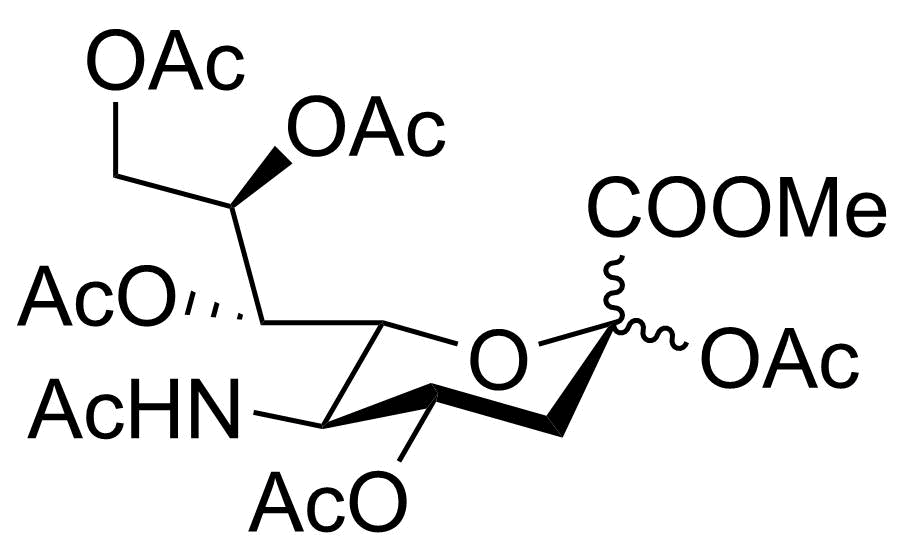XylPNP
Decoy substrate for the glycosaminoglycan biosynthesis
| Product ID: | SV2489 |
|---|---|
| Synonyms: | |
| Tags: | Decoy substrate, Glycosaminoglycans, Inhibitor, Xylose |
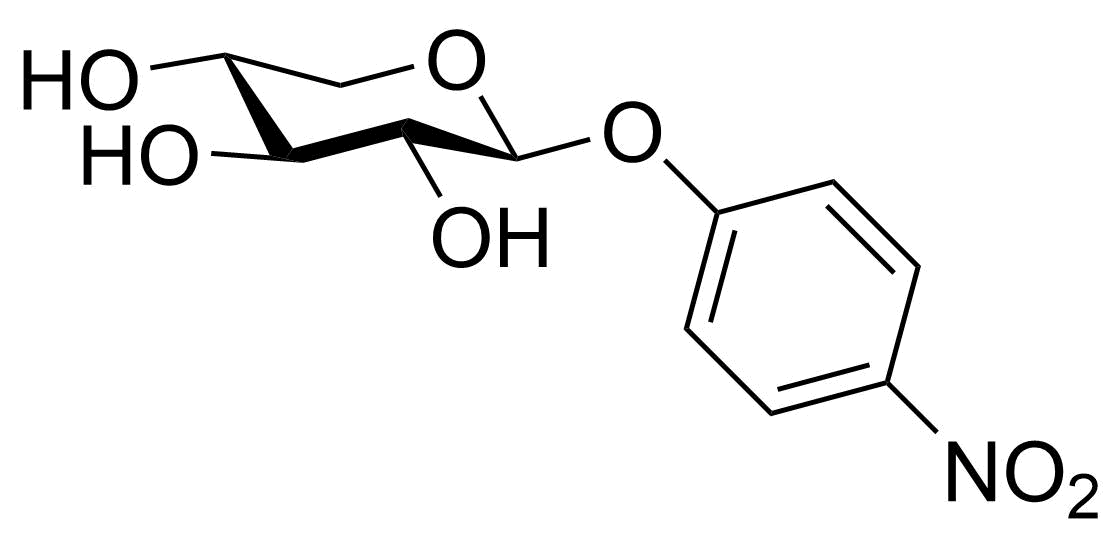
| Product | Price | Estimated Shipping Time | Purchase |
|---|---|---|---|
| XylPNP - 1 mg | €50.00 | 1-3 days | |
| XylPNP - 10 mg | €75.00 | 1-3 days | |
| XylPNP - 100 mg | €125.00 | 1-3 days | |
| XylPNP - 250 mg | €225.00 | 1-3 days |
Product information
-
Function
XylPNP is a decoy substrate for the glycosaminoglycan (GAG) biosynthesis. It acts as a decoy substrate of the endogenous glycosaminoglycan synthesis. Instead of priming GAGs on O-linked xylose residues, GAG synthesis is primed on XylPNP. GAGs primed on XylPNP are excreted.
-
Mode of action
GAGs are connected to the core protein via an O-linked Xylose residue. The biosynthesis of GAGs starts with the addition of Xylose to a serine side chain. Next a Galactose residue is installed in β-1,4 fashion onto the Xylose residue followed by further elongation to afford GAG chains. XylPNP is taken up by cells via passive diffusion and acts as a decoy substrate for the β-1,4 galactosyl transferase in cells and primes the synthesis of GAG chains on XylPNP. Since the chains are connected to XylPNP and not a protein the GAG-XylPNP chains are excreted. At sufficient concentrations of XylPNP, GAG synthesis on O-linked xyloside is inhibited and instead synthesis take place almost exclusively on the XylPNP decoy. It has been shown that XylPNP primes heparan sulfate (HS) and chondroitin sulfate/dermatan sulfate (CS/DS) biosynthesis and hence inhibits the biosynthesis of GAGs carrying these chains. Next to XylPNP, we also offer XylNap which acts in a similar manner. A comparative study found that the hydrophobicity and concentration of these compounds influenced the ratio of HS/CD,DS priming.1 From this study it follows that the hydrophobicity order is XylPNP < XylNap and that the proportion of HS priming increases with increasing hydrophobicity.
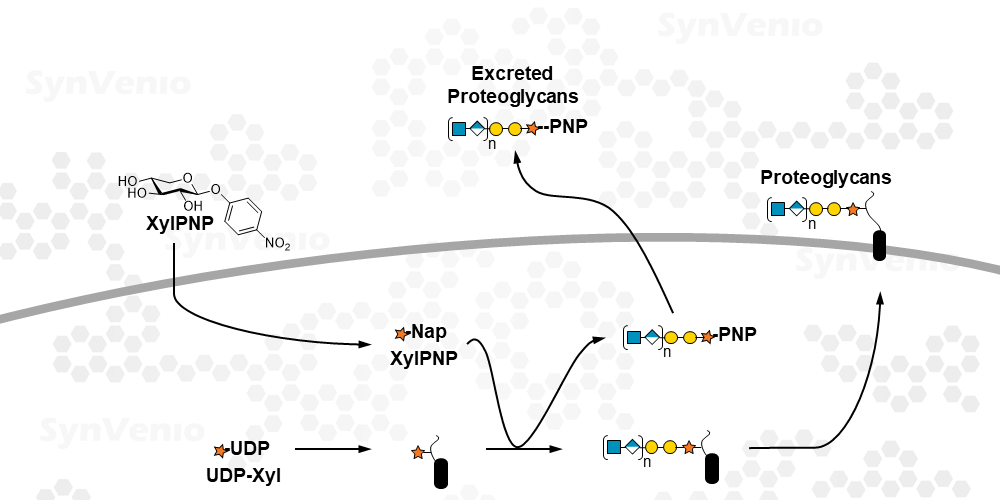
-
Applications
XylPNP is a cell permeable inhibitor of GAG synthesis. The excreted GAG-XylPNP constructs are excreted from the cell and can be isolated an analyzed. These compounds are of particular interest for the study of the role of GAGs in cancer but are also used to study diseases related to defects in the break-down of GAGs.2
-
Handling
XylPNP is soluble in DMSO/water and added to cells in this form (final concentration DMSO 0.5% max). Good priming is achieved at 100µM – 1mM concentration.
-
Chemical Information
CAS No.: 2001-96-9
SMILES: O[C@H]1[C@H](O)[C@@H](O)[C@H](OC2=CC=C([N+]([O-])=O)C=C2)OC1
Chemical formula: C11H13NO7
Molecular weight: 271.22
Purity: > 95%
Identity: 1H NMR
Shipping temperature: 20°C
Storage temperature: -20°C
Recommended Products
| Name |
|---|
| BnGalNAc |
| P-GalNAc6Az |
| P-GlcNTFA |
| P-ManNPoc |
| P-Neu5NAc |
Calculator
Dissolve the required mass in your desired stock volume.
Dilute the required volume of your stock solution to the desired final volume.


